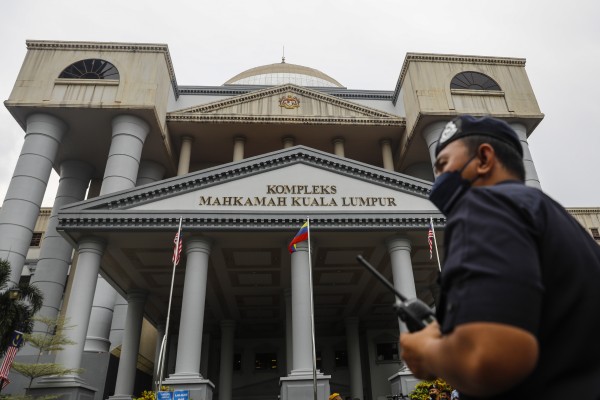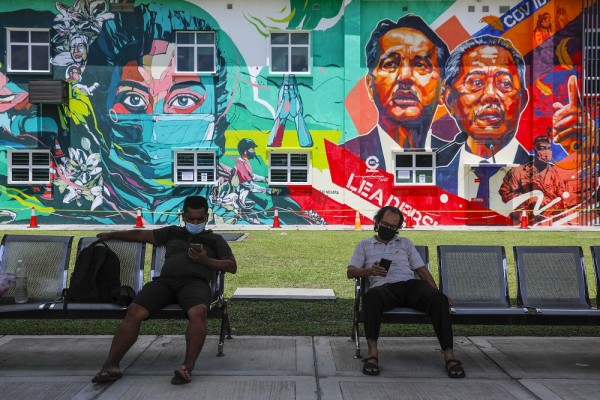Malaysian authorities on Sunday forcibly repatriated a Saudi Arabian newspaper columnist who had fled Saudi Arabia after receiving death threats over Twitter posts deemed insulting to the Prophet Muhammad.
Hamza Kashgari, 23, had been arrested on Thursday while attempting to pass through an immigration checkpoint at Kuala Lumpur International Airport. Reports say he had been on his way to New Zealand to request asylum.
The Malaysian Interior Ministry said in a statement: “Malaysia had a long-standing arrangement by which individuals wanted by one country are extradited when detained by the other … The nature of the charges against the individual in this case are a matter for the Saudi Arabian authorities,” international news media reported.
Last week, on Muhammad’s birthday, Kashgari tweeted: “I have loved things about you and I have hated things about you, and there is a lot I don’t understand about you,” according to media reports. Kashgari is also said to have tweeted that he would no longer pray for Muhammad and would greet the Prophet “as a friend, no more.”
Though Kashgari later apologised and deleted the tweets, his postings reportedly prompted more than 30,000 responses, including death threats. Thousands of people joined a Facebook group calling for his execution.
Saudi clerics branded Kashgari an apostate and the resulting outcry prompted Saudi authorities to call for his arrest. If found guilty on charges of blasphemy or apostasy, which refers to the renunciation or abandonment of faith, Kashgari could face the death penalty.
International Press Institute (IPI) Executive Director Alison Bethel McKenzie said: “Religion is a sensitive, highly personal topic and we understand that Mr. Kashgari’s comments may have offended many Muslims. But while all religions and their sacred figures ought be treated with respect, we are concerned at the severity of the punishment in this case.”
Bethel McKenzie noted that the United Nations Human Rights Committee last year called laws against blasphemy incompatible with the International Covenent on Civil and Political Rights. Saudi Arabia is not a party to the Covenent, but, she said, “human rights do not end at certain national borders––they are universal.”
Malaysia and Saudi Arabia do not have an extradition treaty in place, but the two countries last year signed a security agreement that, according to Malaysian media, furthered cooperation in fighting terrorism, drug trafficking, falsifying documents and crossborder crimes.
Defending his country’s decision, Malaysian Home Minister Hishammuddin Hussein was quoted by the Guardian newspaper as saying he would “not allow Malaysia to be seen as a safe country for terrorists and those who are wanted by their countries of origin, and also be seen as a transit country.”
The Malaysian Embassy in Austria declined further comment and referred IPI to the Interior Ministry statement.
It was unclear whether or to what extent Interpol was involved in Kashgari’s arrest. The Guardian reported that police in Kuala Lumpur said they had arrested Kashgari “following a request made to us by Interpol”. The police appeared to indicate that Interpol had issued a “red notice” on Saudi Arabia’s behalf. A red notice is a request for the arrest and extradition of an individual for whom an arrest warrant has been issued in the requesting country, according to the website UN Dispatch.
In a strongly worded statement, however, the international law-enforcement agency called accusations it had allowed Saudi Arabia to make use of its red-notice system in this case “wholly misleading and erroneous.”
Interpol’s involvement in the case would be highly controversial as, per the organisation’s constitution, it is “strictly forbidden … to undertake any intervention or activities of a political, military, religious or racial character.”
Jago Russell, the chief executive of the British charity Fair Trials International, was quoted by the Guardian as saying: “If an Interpol red notice is the reason for his arrest and detention it would be a serious abuse of this powerful international body that is supposed to respect basic human rights (including to peaceful free speech).


